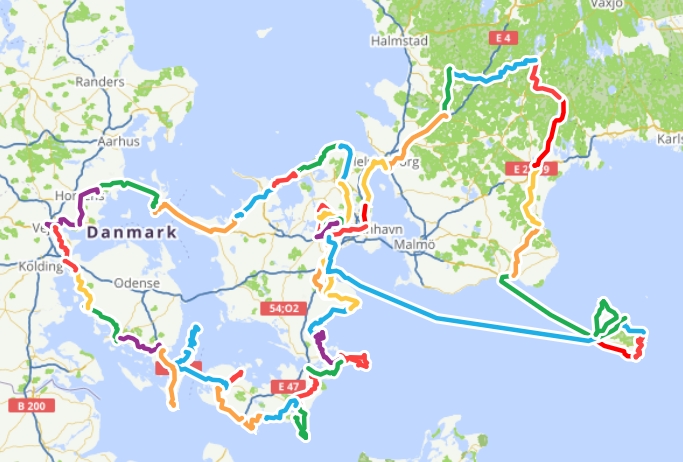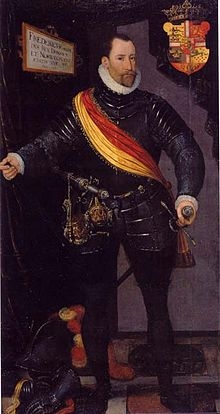 I was definitely not supposed to go on a bike ride in Denmark. Normally I would be in the Netherlands or on my boat in Greece, but this winter I promised my 2 children in Denmark to spend a longer time with them, so that we could do things together several times.
I was definitely not supposed to go on a bike ride in Denmark. Normally I would be in the Netherlands or on my boat in Greece, but this winter I promised my 2 children in Denmark to spend a longer time with them, so that we could do things together several times.
In spring I would cycle to Greece to sail for a while again. That would be a bike ride of about 4,000 km.
 Some history about Lighthouses and specifically Danish ones... (General info on wikipedia)
Some history about Lighthouses and specifically Danish ones... (General info on wikipedia)
An organized lighthouse service’ in Denmark, started with King Frederik II who in 1560 sent a message to Otto Brahe, sheriff at Aalborghus, Jacob Brockenhuus, sheriff at Helsingborg and Jenns Jul, sheriff at Kalø, who commissioned them to establish marking of the sailing route between Skagen and Falsterbo (Sweden), with the lighthouse positioned at Skagen, Anholt and Kullen (Sweden).
This was the first time in history where a sea route was marked. For the first lighthouses a fireplace was used as a light emitter. The fire was initially placed on a so-called "fire pan", later in an iron stand called the "lamp", which could be raised up to a height of about 20 cubits (12.5 m.).
The construction in which the lamp was placed is not known with certainty. It is known that it was called a "Parrot", but has no sources that certainly depict a "Parrot". The use of wood as a firing material eventually made such an impact on the surrounding forests that it was necessary to retrieve it from afar. Since the work of keeping the lighthouse lit was so difficult, even considering the circumstances of that time, another light source had to be found.
Until 1606, locally produced fish liver oil was used; then light tallow was used; and later – from around 1620 - coal. For the fish oil and tallow lights, wooden lighthouses were employed, with a so-called "lantern" at the top part where the lights were placed.
When the coal took over, the coal fire was initially placed on top of the existing lighthouses. That was soon found to be a mistake. On the one hand, the movement of coal was difficult, and on the other hand there was a great risk of a fire.